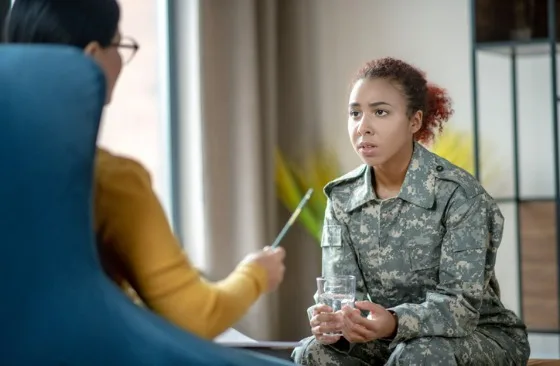The Expert:
Shea O’Neill, M.D. is an Obstetrics & Gynecology Specialist based in San Diego, CA.
How does trauma play a role in pain?
It’s a long time of a lot of research where we started looking at pain, but for the most part, where we’re landing is that a human will have a genetic predisposition to a certain response. For instance, you would have a history of migraines in your family. You would have a history of jaw pain in your family. You would have a history of endometriosis in your family. So somebody has a genetic predisposition to respond a certain way. Not everybody gets migraines. So you have a genetic predisposition that starts somebody out, and then you have a traumatic event. And I really explain to patients that there’s two ways to deal with trauma, and only two. One is to deal with it, and the other is to not deal with it. And there’s two ways of dealing. There’s intellectual dealing, meaning gosh, I put my hand in that fire, that hurt, I’m not going to do that again. And then there’s emotional dealing with it. Every human deals with it intellectually, like I’m not going back there, I’m not going to do that ever again. But they don’t emotionally process it because there’s no human on the planet that likes being sad. It’s kind of that simple. We don’t like being sad. It doesn’t feel good being sad. Nobody teaches us how to be sad. Nobody sits with our sadness. And so, if you don’t like being sad and you are capable, you’re going to box that sadness, whatever made you sad – whether it’s a house fire, it’s a mother dying, it’s losing a toe – I’ve heard every conceivable human trauma at various ages. And once that trauma is not processed, it gets put down, and if the trauma is, I don’t want to say if it’s bad enough, if they’re traumatized and they put it away, um, the first physiologic response every human does, whether they’re 2 years old or 72, is they stop sleeping. So they have a lot of pretty good data that, um, widespread pain, and you can include all kinds of pain conditions, is predated by about six months by a sleep disorder. And somebody who’s hypervigilant because they haven’t processed their trauma, again, whether they’re 2 or 72, and they’re putting it down … They stop sleeping. And stop sleeping means either difficulty falling asleep or difficulty staying asleep. Now, if you have a child who’s been traumatized at an early age, then you ask them their sleep history, it’s difficult to get one because bad sleep is all they know. So when you stop sleeping, I always tell patients, well then you start breaking. It’s not hard for people to imagine if you stop sleeping for three or four days for whatever reason and somebody asks you to go do a 5K run, you’re gonna sprain your ankle. But it surprises people that if they’ve not been sleeping for 20 years and now they’re 22, and their body has been breaking with headaches, jaw pain, reflux, and it goes on. So it’s, and a majority of patients know the trauma. It’s not darkness. It’s not repressed memories. A majority of patients, it just doesn’t occur to them that they were traumatized, because doesn’t everybody’s mother die? And don’t other people have house fires? And doesn’t everybody move 16 times in their life? So people don’t really associate that. So how I get them to understand things, I say, well look, your headache started at age five. Headaches in a 5 year old are not normal. Your stomach pain started at age 12. You had a painful period starting at 14. You start having pain with intercourse at 19, and you were assaulted at 22. So lots of people would assume that that assault was the problem, and so trauma-informed care is to say yes, that’s a problem, but that’s not the problem. The problem is what happened to you at five. And so then I can direct counseling, because once they know really what the problem is, then the pain, it’s just energy. So they’re either having physical pain or emotional pain. And no human on the planet wants to be in emotional pain, so it’s a hard thing to tell somebody: you’d prefer to be in physical pain than emotional pain. But that’s a, that’s a normal human response, as I far prefer to have my shoulder hurt than my heart.
Experta:
Shea O’Neill, M.D.
Especialista en obstetricia y ginecología con consultorio en San Diego, CA
¿Qué papel juegan los traumas en el dolor?
Hemos investigado mucho el dolor durante bastante tiempo, pero principalmente, lo que hemos determinado es que una persona tiene una predisposición genética para una reacción específica. Por ejemplo, si tienes antecedentes de migrañas en tu familia. Si tienes antecedentes de dolor de la quijada en tu familia. Si tienes antecedentes de endometriosis en tu familia. Es decir, las personas tienen una predisposición genética para reaccionar de cierta forma. No todos tienen migrañas. Es decir, tienes una predisposición genética que es inherente a ti y además tienes un acontecimiento traumático. Y trato realmente de explicar a los pacientes que solo hay dos formas para lidiar con los traumas. La una es abordarlos, y la otra es no hacerlo. Y hay dos formas de abordarlos. Hay la forma intelectual de hacerlo, es decir, cielos, puse mi mano en ese fuego, me dolió, no voy a hacerlo otra vez. Y hay la forma emocional de abordarlo. Todas las personas lo abordan intelectualmente, es decir, no voy a regresar allí, no haré eso otra vez. Pero no lo procesan emocionalmente porque no hay ninguna persona en el planeta que le guste sentirse triste. Es algo simple. No nos gusta sentirnos tristes. La tristeza no es una sensación agradable. Nadie nos enseña cómo sentirnos tristes. Nadie disfruta nuestra tristeza. Es decir, sino te gusta sentir tristeza y puedes hacerlo, tratarás de evitar lo que haya sido que te entristeció, ya sea el incendio de una casa, la muerte de una madre, la pérdida de un dedo del pie, he escuchado todos los dramas humanos concebibles a varias edades. Y si no se procesa el trauma, este se almacenará, y si el trauma es, no quiero decir suficientemente malo, si la persona está traumatizada y trata de no pensar en eso, la primera reacción psicológica de todas las personas, ya sea que tengan 2 o 72 años Es dejar de dormir. Hay mucha información buena que indica que el dolor en general, y podemos incluir todo tipo de condiciones de dolor, ocurre aproximadamente seis meses antes de un trastorno del sueño. Y una persona que esté excesivamente alerta porque no procesó su trauma, ya sea que tenga 2 o 72 años y está tratando de no pensar en él… Dejará de dormir. Y dejar de dormir significa dificultad para contraer o mantener el sueño. Ahora, si tienes un niño que tuvo un trauma a una edad temprana, y le preguntas acerca de sus antecedentes de sueño, es difícil obtenerlos porque dormir mal es todo lo que conocen. Por eso, si dejas de dormir, siempre digo a mis pacientes, empezarás a resquebrajarte. No es difícil para personas imaginarse que si dejas de dormir durante tres o cuatro días, por cualquier motivo, y alguien te pide que corras 5 km, te torcerás el tobillo. Pero la gente se sorprende que si no han dormido durante 20 años y ahora tienen 22 años su cuerpo habrá estado resquebrajándose con dolores de cabeza, dolor de quijada, reflujo, etcétera. Y la mayoría de pacientes saben cuál es el trauma. No es la oscuridad. No son recuerdos reprimidos. La mayoría de los pacientes no piensan que están traumatizados, porque ¿no se mueren las madres de todas las personas acaso? Y, ¿no se incendian las casas de otras personas acaso? Y, ¿no se mudan todas las personas 16 veces en sus vidas acaso? Es decir, las personas realmente no asocian eso. Entonces, en la forma en que hago que comprendan, les digo, mira, tu dolor de cabeza empezó cuando tenías cinco años. No es normal para un niño de 5 años tener dolores de cabeza. Tu dolor de estómago empezó cuando tenías 12 años. Empezaste a tener períodos menstruales dolorosos a los 14 años. Empezaste a tener dolor durante tus relaciones sexuales a los 19 años y te agredieron cuando tenías 22 años. Entonces, muchas personas asumirían que esa agresión fue el problema y atención con información del trauma implica decir sí, ese es un problema, pero ese no es el problema. El problema es lo que te pasó cuando tenías cinco años. De esta forma puedo dirigir la terapia porque una vez que saben cuál es realmente el problema, entonces el dolor, es solo energía. Tienen dolor físico o emocional. Y ninguna persona en el planeta quiere tener dolor emocional, así que es difícil decirle a alguien: preferirías tener dolor físico que emocional. Pero eso es una reacción humana normal, puesto que prefiero tener dolor en mi hombro que en mi corazón.















